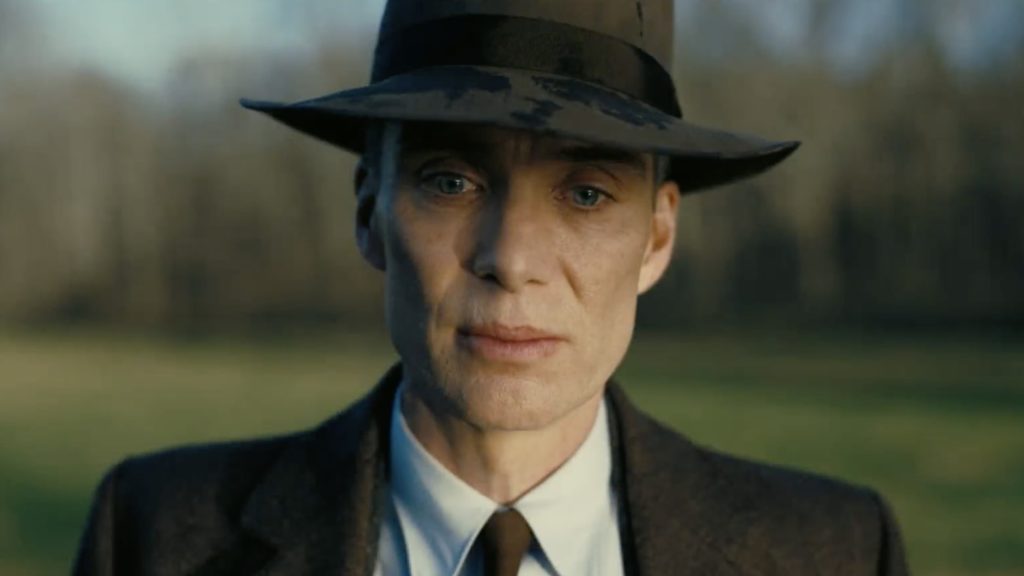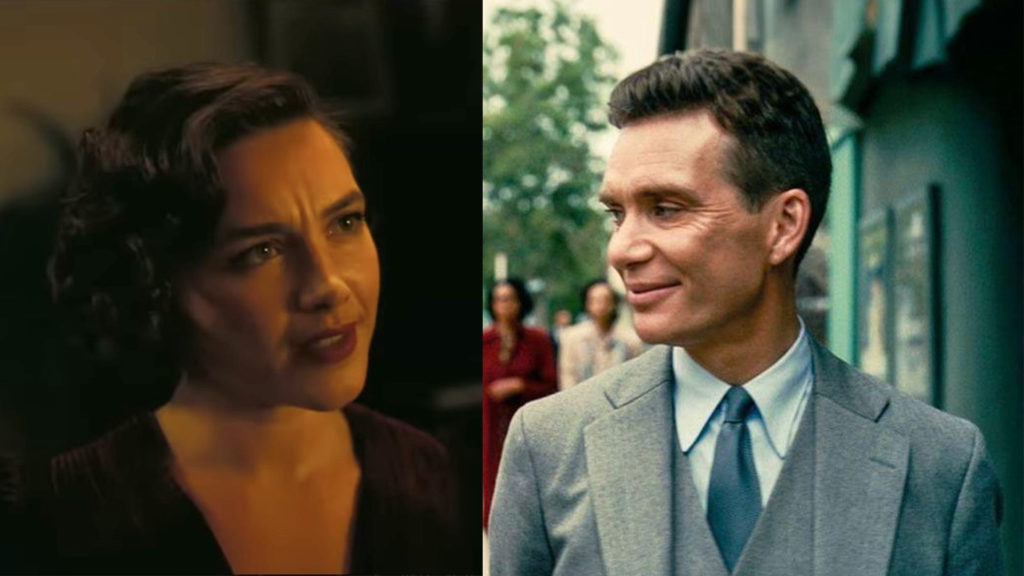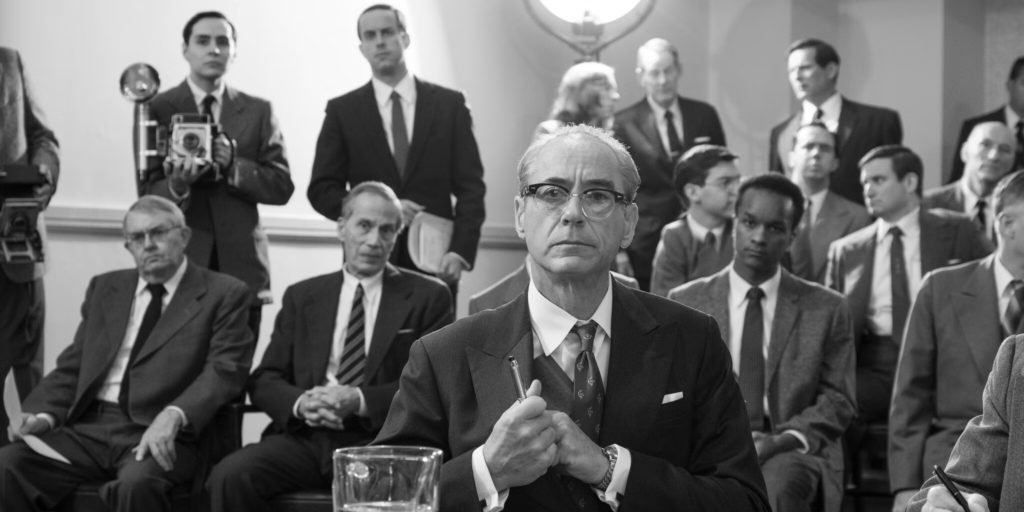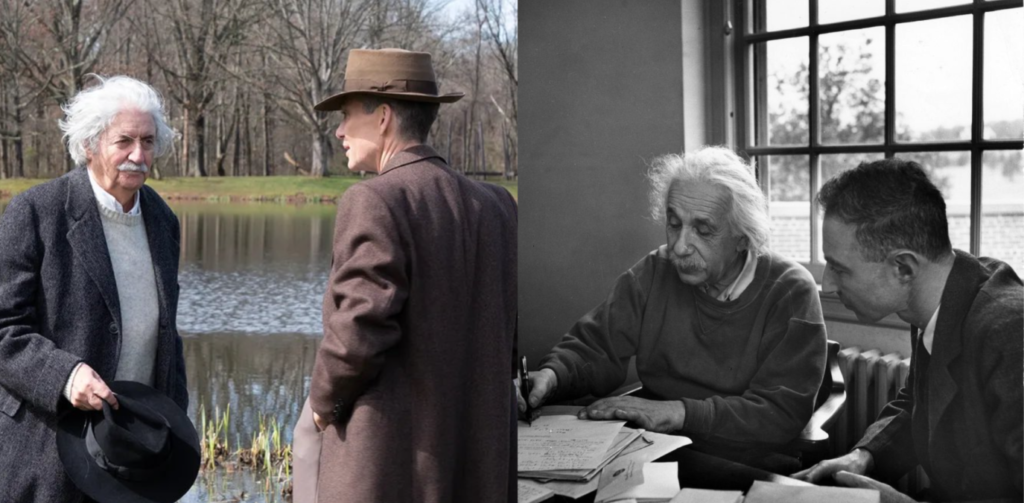Halloween Flicks Pt. 2
Four more classic horror films that are entertaining even if occasionally absurd.


I was floored by Oppenheimer. I left the theater blown away (no pun intended) by what I had just witnessed. The film never felt too long nor boring. Despite not understanding practically pages of dialogue at a time, the movie retained an undeniable gravity (again, no pun intended) and suspense.
I’ve yet to analyze my experience piece by piece because I thought it would ruin the effect. I’ve been surfing this wave of contentment for days without studying the ‘why’ of it all.
What made it great? A few things: the scale, the acting, the technical wizardry involving sound and editing, and a true understanding of an elusive historical figure that starts on the page.
This wasn’t some sci-fi epic like Interstellar, nor did it have the grit and pedigree of the war film, Dunkirk. This movie was more subtle. It functions somewhat as a biopic. Starting with his early academic years, Oppenheimer sticks to the story of Dr. J. Robert Oppenheimer (Cillian Murphy) and we don’t venture far from him over the course of 3 hours. The sound, realistic visual effects, and editing are all impressively concentrated on the internal struggles of one man, the “founder of the atomic bomb.”

We root for Oppenheimer throughout the film, but what are we supporting? Redemption? Forgiveness for some awful deed? Are we, as an audience, meant to celebrate this person to a degree? This “destroyer of worlds,” as what’s read to him by Jean Tatlock (Florence Pugh) early(ish) into the film. A phrase he later recites to himself.
I may be exaggerating when I say pages of dialogue flew over my head. It was more-so in the second half of the film where I kind of lost track of where the story was trying to go. Instead of dwelling on some depiction of the enemy, be it the German or Japanese during or in the aftermath of World War 2, or the dropping of A-bombs on Hiroshima and Nagasaki, we stay close to Oppenheimer as he navigates numerous behind closed door exchanges all in the process of creating and using this extraordinary weapon and dealing with its after-effects.
Much like many of director Christopher Nolan’s films, Oppenheimer sort of jumps around chronologically with a clearly established past and present. They are visually distinct periods: the present is in black & white while the past is in color. This is reminiscent of Memento. Simple enough. It’s an interesting choice by Nolan to assign the traditionally archaic black and white to what’s considered present-day mid-1950s. The past on the other hand is in vibrant color from the 1920s onward.
The 1920s is where we’re introduced to Oppenheimer as a young student abroad in England. He is on the cutting edge of a new science dealing with quantum physics. In America, he joins the faculty at the University of California where he meets nuclear physicist Ernest Lawrence (Josh Hartnett). He begins seeing Jean (Florence Pugh), a member of the Communist Party, and eventually marries Kitty (Emily Blunt), also a former member of the Communist Party. These affiliations would work against Oppenheimer later in life.

US Army General Leslie Groves (played perfectly by Matt Damon) recruits Oppenheimer to run The Manhattan Project with the aim of designing and developing the atomic bomb before the Germans do. After assuring General Groves that he has no ties with the Communist Party, Oppenheimer recruits a number of scientists to help accomplish the project’s aims of creating a weapon that would change the world, and end all wars.
The eventual tests that were conducted at Los Alamos (a desert like region of New Mexico) are rendered quite convincingly. Nolan is traditionally averse to CG when he can create live-action effects. Seeing an actual explosion front-of-camera might be the best scene in the film.
Once completed, the higher-ups realize the weapon they have at their disposal, basically taking it out of Oppenheimer’s hands.
The physicist is celebrated after the end of the war. He appears on Time Magazine’s cover and is considered one of the most brilliant scientists in the world.
The accolades cease, however, (*SPOILER ALERT*) when Chairman of the US Atomic Energy Commission, Lewis Strauss (Robert Downey Jr.), exacts revenge on Oppenheimer after being humiliated by him at a public congressional review.

Oppenheimer’s reputation hangs in the balance because of Strauss’ meddling. His prior involvement with the Communist Party is brought to light during the 1950s McCarthy era. He loses all security clearance as well as his credibility. (*SPOILER ALERT*) Strauss eventually gets his comeuppance later on during a Senate confirmation hearing, when it’s revealed to the public the kind of lowly tactics Strauss used to try to ruin Oppenheimer’s reputation.
Nothing seems to save Oppenheimer from his guilt however. Even as he’s recognized by President Lyndon B Johnson years later for his contributions to science and ending World War 2, his conscience remains plagued by the thought of the immense destruction his work has unleashed on the world.
There are boat loads of white cis males in this film. All in the name of historical accuracy. And as I previously mentioned, we don’t see the effects of the bomb on the Japanese population. A very clear choice which I guess was made to emphasize how removed and insulated Oppenheimer and his peers were from the eventual destruction.
Old men in suits deciding the fate of the world.
Director Christopher Nolan likes to wrap his movies in a pretty little bow (see Inception, Tenet, Interstellar). Usually with an ending that recalls a moment from the beginning. This produces a sense of coming full-circle. It’s highly effective and done brilliantly here. In one of the first scenes, Oppenheimer meets Albert Einstein (Tom Conti). We don’t hear their exchange but as Strauss approaches, Einstein gives him a sullen look. At the end of the movie we’re treated to just precisely what Einstein said to Oppenheimer. This scene helped me understand Oppenheimer more as a whole.

Nolan was famously shunned at the Oscars the year he made The Dark Knight as it neither garnered a Best Picture nor a Best Director nomination. Perhaps this will be his year. This movie is a force to be reckoned with; it can’t be denied.
I read a snippet of a positive review on IMDB. The person says that Oppenheimer respects the audience’s intelligence. I agree. Additionally the film is brimming with dense dialogue just waiting to be reviewed, studied and analyzed. Like Easter eggs in plain sight. I look forward to watching this movie again, parsing through the details, and gaining a better understanding of the movie’s overall message.
Now all I have to do is get to a theater to see Barbie.
Related lists created by the same author
Four more classic horror films that are entertaining even if occasionally absurd.